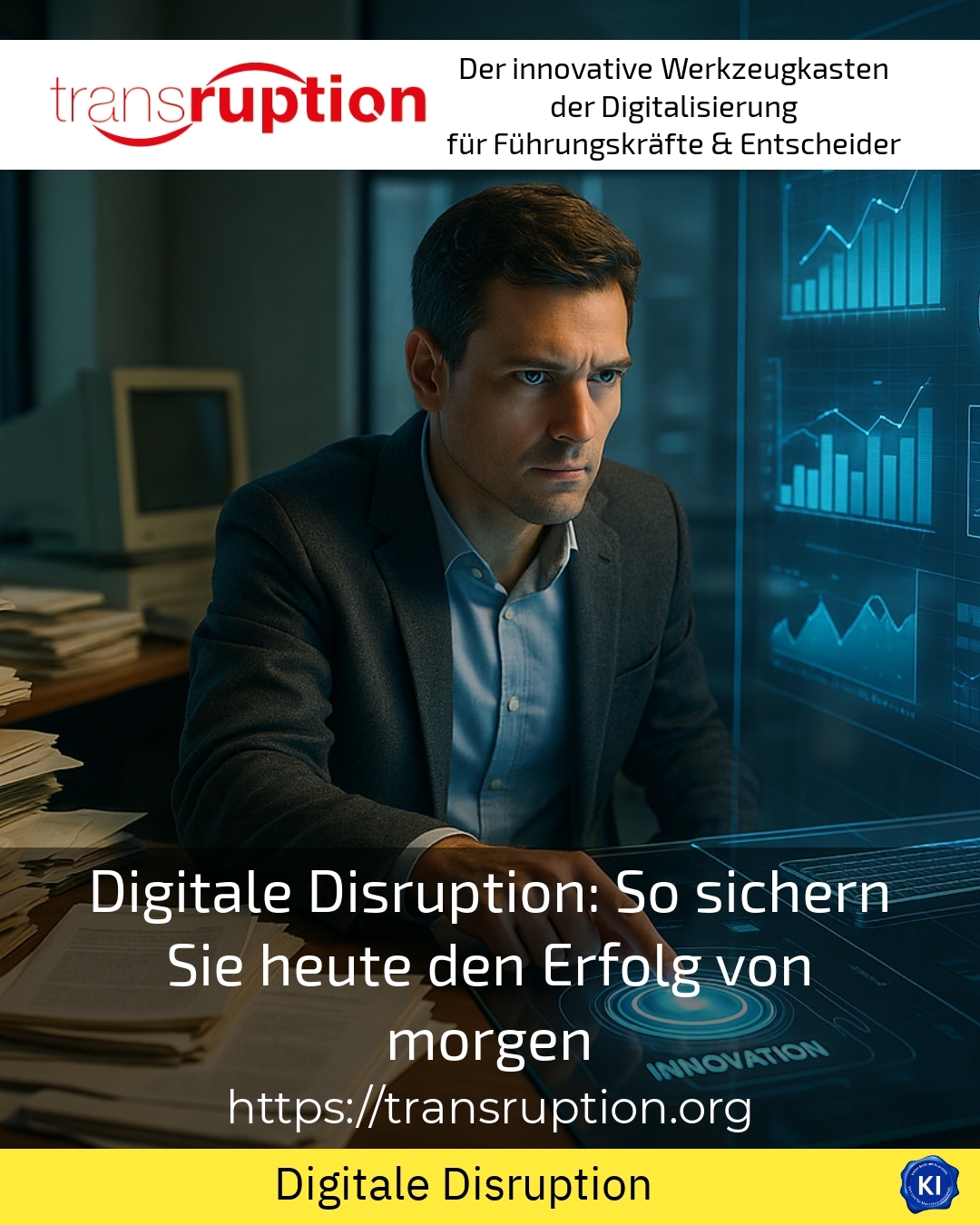Digital disruption is shaping the modern economy and is a decisive factor in securing tomorrow's success today. Companies are facing rapid change that is profoundly transforming individual sectors. Old structures are being broken up and completely new business models are emerging. Those who actively accompany this change can recognise new opportunities and gain a competitive advantage.
Digital disruption - what does this mean for companies?
Digital disruption refers to the radical transformation of markets through digital technologies and innovations. It often leads to traditional business models being broken up and replaced by new, more efficient processes. One example of this is the retail sector, where online platforms such as Amazon are challenging traditional bricks-and-mortar retail. These platforms offer customers enormous choice and convenience, which poses new challenges for many companies.
Digital disruption is also changing the rules of the game in the mobility sector. Companies such as Uber have efficiently networked supply and demand through digital platforms. This allows private individuals to act as transport service providers, which often puts traditional taxi companies at a disadvantage. This is similarly evident in the hotel industry with Airbnb, which complements traditional accommodation providers by sharing private properties.
In the media industry, digital streaming services such as Netflix and Spotify have completely revolutionised distribution and usage patterns. Customers now have access to customised services that can be used individually and at any time.
How to deal with digital disruption?
A conscious approach to digital disruption requires companies to be open and adaptable. Time and again, companies that not only adapt digital technologies but also actively integrate them into their business models are successful. The challenge is to critically scrutinise old structures and break new ground.
A practical tip is to set up or participate in digital platforms. This makes it possible to maintain direct access to customers and serve market needs quickly. The examples already mentioned, such as Amazon, Uber and Airbnb, show how important it is to create digital ecosystems that create added value.
In addition, the use of artificial intelligence and big data helps companies to automate processes, better understand customer wishes and customise offers. This can be seen in retail, for example, where personalised product recommendations increase sales, or in customer service, which is available around the clock thanks to digital chatbots.
Clients often report that the biggest hurdle in dealing with this upheaval is the corporate culture. Resistance to change can put the brakes on innovation. This is why transruptions coaching provides targeted support for digital disruption projects and helps managers to introduce new ways of thinking and acting.
BEST PRACTICE at the customer (name hidden due to NDA contract) As part of a digitalisation project, the introduction of AI-supported data analysis was accompanied, which has since supported decision-making processes in real time. The collaboration with transruptions-Coaching eliminated initial uncertainties and enabled rapid adjustments to the business model, which significantly improved market access.
The importance of customer focus in digital disruption
A key factor in the successful implementation of digital disruption is a consistent focus on customer expectations. Consumers today are increasingly better informed and expect fast, simple and personalised solutions. Streaming platforms, for example, use their user data to offer personalised content and increase dwell time.
Retailers are also benefiting from this development. Personalised recommendations and simple online ordering options increase customer satisfaction and retain shoppers in the long term. At the same time, digital tools for transport service providers or mobility providers such as Uber enable direct interaction with customers, which leads to greater transparency and service quality.
Companies that actively listen to their customers and systematically analyse their feedback gain a clear competitive advantage. Customer-centred innovations are often the starting point for new digital business models.
Recognising and using digital disruption as an opportunity
Many companies initially see digital disruption as a threat. However, those who see change as an opportunity can emerge from the situation stronger in the future. For example, digital platforms enable new sources of revenue and faster market access. Digital commerce offers small manufacturers the opportunity to become globally visible without having to set up their own extensive sales structures.
In addition, companies are increasingly focussing on partnerships with start-ups in order to integrate innovative strength in a flexible and targeted manner. This creates a culture of experimentation that supports permanent change and contributes to sustainable success.
BEST PRACTICE at the customer (name hidden due to NDA contract) With the support of this coaching method, a medium-sized company from the logistics sector has established a cloud-based platform for the real-time tracking of shipments. This digital innovation was very well received by customers in a short space of time and led to a significant increase in customer satisfaction and process optimisation.
My analysis
Digital disruption requires a proactive attitude and strategic action from companies in order to ensure tomorrow's success. It enables the creation of new value chains and increases customer centricity. Successful examples from the retail, mobility and media sectors show how innovative companies are flexibly tackling the digital transformation and thus strengthening their market position.
Many companies benefit from transruption coaching, which provides suitable impetus and support in dealing with disruptive changes. The key lies in the combination of technology, customer focus and corporate culture.
Further links from the text above:
Digital disruption - definition, explanation and tips - nerdly
Digital disruption - IT-P Lexicon
Disruptive business models: creating new markets
Innolytics Digital Disruption
Disruptive innovation: 3 examples
Digital disruption and megatrends
Digital disruption: How to make your company crisis-proof
For more information and if you have any questions, please contact
Contact us or read more blog posts on the topic
TRANSRUPTION here.















